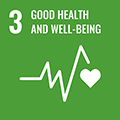TRANSFORMING CHILD WELL-BEING AND SOCIAL COHESION
Queen’s University Belfast is at the forefront of research into child wellbeing, early childhood development, and social cohesion. The university’s work, led by experts including Dr. Laura Dunne and Sarah Millar explores how high quality early childhood development (ECD) initiatives can contribute to peacebuilding and social cohesion in conflict-affected countries around the world.
Research at Queen’s also challenges policy assumptions around educational underachievement in Northern Ireland and pioneers data-driven approaches linking health and education. The university's collaborations with international bodies such as UNICEF, Early Years, and prestigious university partners such as Yale, NYU and Harvard have positioned it as a key player in shaping policy at regional, national, and global levels.
Research Challenge
EARLY CHILDHOOD DEVELOPMENT AS A PATHWAY TO PEACEBUILDING
Research at Queen’s examines the role of ECD programmes in fostering social cohesion in low- and middle-income countries (LMICs). As part of the NIHR-funded LINKS project, Queen’s researchers, including Dr. Dunne, collaborate with global partners to investigate the societal benefits of early childhood development initiatives in Vietnam, Timor-Leste, Kyrgyzstan, Tajikistan, Mali, Egypt, Palestine, and Colombia. These programmes enhance child health and education and increase social cohesion by rebuilding community trust and strengthening institutional relationships.
This research has informed international policy discussions, including presentations at UN events advocating for a formal UN resolution on the role of ECD in peacebuilding. Queen’s research contributes to global efforts to recognize the value of investing in early childhood as a means of conflict prevention and social reconstruction.
Our involvement in this event represents a growing research collaboration with Yale University... to progress our understanding of peacebuilding and social cohesion to improve outcomes for children and young people.
- Dr. Laura Dunne
What impact did it make?
RESHAPING NORTHERN IRELAND’S EDUCATION POLICY
At the national level, research at Queen’s is driving policy change in education. Large-scale data analysis has challenged traditional narratives around educational underachievement in Northern Ireland. Their findings reveal that socioeconomic factors—such as class, maternal education, and homeownership—are more significant determinants of student success than religious background.
This evidence-based approach has directly influenced policy discussions within the NI Assembly, informing the review of educational underachievement led by Peter Weir and fostering ongoing engagement with Stormont policymakers. Queen’s continues to work with all-party groups on education to develop targeted interventions for children facing socioeconomic challenges.
INTEGRATING HEALTH AND EDUCATION DATA FOR POLICY INNOVATION
Queen’s researchers are also exploring the intersections between public health and education, advocating for the integration of health and education data to enhance policy decisions. Collaborative work with Ulster University examines how parental health influences children’s educational outcomes. By leveraging large-scale data linkage, this research aims to inform interventions that support both family well-being and educational achievement.
Our impact
Impact related to the UN Sustainable Development Goals
Learn more about Queen’s University’s commitment to nurturing a culture of sustainability and achieving the Sustainable Development Goals (SDGs) through research and education.










